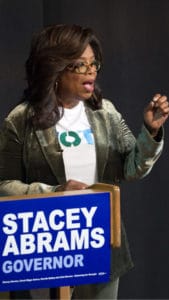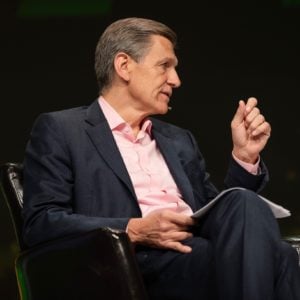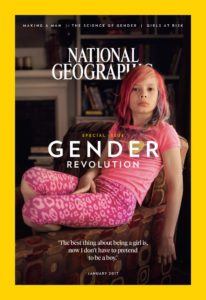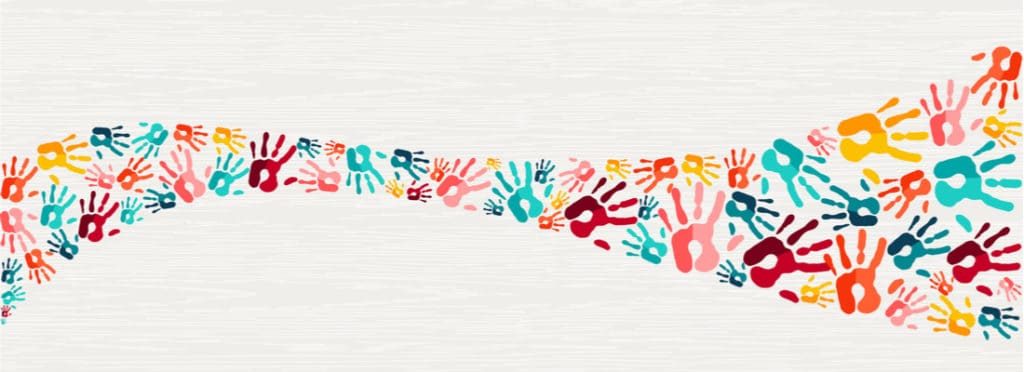As U.S. voters headed to the polls in a divisive election, executives from top marketers took a hard stance against discrimination in all forms.
Indeed, politics filled the air at the Association of National Advertisers’ Multicultural Marketing and Diversity Conference in Miami. Many conference goers juxtaposed the event’s inclusion-themed content against President Trump’s America-First rhetoric. Even as Trump said an anti-immigration campaign ad linking migrants to crime was “effective,” the Barcelona-based CMO of Sprint proudly stated his company has 30% of the Hispanic market.
“The sociopolitical climate has certainly given many brands a reason to focus more on the ethnic and multicultural realities of our country,” said Jennifer L. Woods, director of Hispanic digital agency Captura Group.
Woods noted many brands have responded to what many feel is a divisive atmosphere with a greater commitment to reflecting diversity in advertising and marketing, as well as in their internal initiatives, “so we could say that the climate has actually given rise to more multicultural marketing work, in the spirit of reflecting more human values.”
On the heels of media mogul Oprah Winfrey’s impassioned plea for Georgia Democratic gubernatorial candidate Stacey Abrams to become the country’s first black female governor, Carnival Cruise Lines SVP and Chief Communications Officer Roger Frizzell announced Winfrey is the godmother of a new ship.

“Taking politics aside, there’s no one more popular than Oprah,” he said.
Many conference speakers noted risk and reward calculations are on the side of diversity. Companies that take bold stances to represent the needs and aspirations of the traditionally disenfranchised could alienate conservative audiences, but growth opportunities far outweigh those costs, according conference speakers.
“If you are not doing multicultural marketing, you are not doing marketing,” ANA CEO Bob Liodice said. “History says we are not making the right decisions for growth. Why don’t we do that? Part of the problem is we are geared in the wrong way.”
Research shows budgets are not keeping up with demographic changes, including a growing multicultural population, a declining Caucasian population and LGBTQ consumers’ buying power estimated at $1 trillion by Bloomberg. Such obstinance hurts companies in the long run, according to ANA research, citing half of Fortune 500 companies experienced an average 9% sales decline in 2016.
About 50% to 60% of advertisers spend less than 1 percent of their ad budgets on multicultural audiences, even though the country is moving in a majority-minority direction, according to the 2018 AdSpend Trends Analysis published by ANA’s Alliance for Inclusive and Multicultural Marketing. According to the report, 23% of surveyed companies claim to have insufficient funds to target new audiences and 15% do not have the talent with the right expertise.
P&G Chief Brand Officer and ANA Chairman Mark Pritchard said he has learned some tough lessons on the way to a multicultural and gender-parity mentality, taking his audience on what he described as an “awkward” personal journey. Only in the last year has he told audiences of his Mexican ancestry—his father’s last name was Gonzalez and he grew up “dirt poor” in Colorado until he was later adopted.

“I suppressed my Mexican heritage because I’d heard of the bias,” he said, acknowledging that his background might have made him innately sensitive to other groups. But he said years back, the company staged an “intervention” because he was not being sensitive enough to the African-American experience.
After a lot of soul searching, including a family retreat with a spiritual leader, Pritchard began to appreciate the influence he has on society and pop culture.
“I came to grips with my own bias,” he said. “I recognized the privilege of being white.”
As an example of initiatives under his watch, Pritchard noted Tide’s #washawaylabels campaign, done in partnership with the National Council of La Raza. A film documented the various racial slurs against Hispanics and printed them on white t-shirts. When washed in Tide, the stains went away, leaving a blank space to write positive words.
Following up on a McKinsey report that found that $12 trillion could be added to global GDP by 2025 by advancing women’s equality, P&G’s Cover Girl brand teamed up with its spokeswoman, rapper and actress Queen Latifah, and Tribeca Studios to launch the Queen Collective. The program aims to accelerate gender and racial equality behind the camera by creating distribution for films produced by diverse female directors.

Targeting black audiences has likewise been a huge boon to the Disney franchise, which reviewed the success of its latest partnership with the Marvel comics empire on Black Panther. Slighted in the media in 2014 for its obsession with “white guys saving the world,” Marvel Studio released the superhero franchise earlier this year. The movie, shot by a black director and cast, won over black and white audiences alike, in addition to a global audience. Like many other Disney films, it become a $1-billion hit and also the number-one tweeted movie in the history of the social network, said Theresa Cross, VP of marketing at Disney Motion Picture Marketing.
Just as Hollywood has had to look inward to be more inclusive outward, and echoing Pritchard’s regret, National Geographic Editor-in-Chief Susan Goldberg looked back on the magazine’s own racism in her presentation “Diversity in America.” At various times in the 20th century, the magazine referred to aboriginals as “savages,” omitted the fact that slaves built homes in an article on Virginia’s past, and depicted South African gold miners as “entranced by thundering drums during vigorous dances” without saying a word about Apartheid.
With acute analysis and its signature photography, the magazine today features men, women and children from all walks of life, said Goldberg. She noted the magazine ran a “Gender Revolution”-themed issue featuring a transgender girl on the cover two months after the 2016 presidential election. It drew fire from at least one arch-conservative politician.
“David Duke called me a pervert and suggested I be investigated by the FBI,” she said, to applause from the audience. “I am so proud.”





Join the conversation